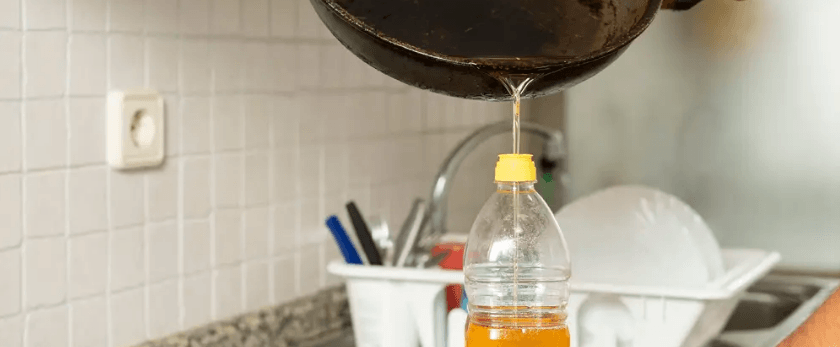Cooking with a deep fryer can be a delicious and convenient way to prepare your favorite treats, but what do you do with the leftover cooking oil? Pouring it down the drain is not the solution! In this article, we'll explore responsible and eco-friendly methods to dispose of cooking oil from your deep fryer, ensuring you can enjoy your crispy creations while also contributing to a greener planet.
When Should I Throw Out Deep Fryer Oil?
Knowing when it's time to bid farewell to your deep fryer oil is crucial. Reusing oil is not only economical but also eco-friendly. Here are some tips:
- Visual Inspection: If the oil has become cloudy, has an off odor, or you see floating food particles, it's time for a change. These are signs of oil breakdown and contamination.
- Smoke Point: If the oil starts smoking at a lower temperature than usual, it's likely degraded and should be replaced.
- Frequency: After 8-10 uses, consider changing the oil, even if it still looks okay. Frequent use can lead to the accumulation of harmful compounds.
Can You Flush Deep Fryer Oil?
Absolutely not! Flushing cooking oil down the drain can lead to serious plumbing issues. It may clog pipes and sewers, causing costly damage to your home and the environment. Instead, opt for responsible disposal methods.

How Do You Properly Dispose of Cooking Oil?
1. Cool It Down: Allow the used oil to cool completely. Hot oil can be dangerous to handle, so exercise caution.
2. Strain It: Using a fine-mesh strainer or cheesecloth, strain the oil to remove any food particles. This step is essential to prevent clogs in the recycling process.
3. Store It Temporarily: If you plan to reuse the oil for future frying, transfer it to a clean, airtight container, and store it in a cool, dark place. Properly stored oil can be reused several times.
4. Recycle It: Many communities offer recycling programs for used cooking oil. Check with your local recycling center or city government to find the nearest drop-off location. In some areas, you may even find collection bins at local grocery stores.
5. Repurpose It: Get creative! Used cooking oil can be repurposed for various tasks. You can use it to condition wooden furniture, lubricate squeaky hinges, or even make homemade soap. Just be sure to strain it thoroughly before using it for these purposes.
6. Compost It: If recycling options are limited, you can consider composting small amounts of used cooking oil. Mix it with other organic materials like food scraps and yard waste. However, be cautious not to overload your compost pile with too much oil, as it can slow down decomposition.
7. Take It to a Collection Event: Many communities host hazardous waste collection events where you can drop off used cooking oil along with other household items like paint, batteries, and electronics. Keep an eye out for these events in your area.
By following these eco-friendly disposal methods, you not only prevent environmental harm but also contribute to a sustainable future. Responsible disposal of cooking oil ensures that it doesn't end up in our waterways, where it can harm aquatic life and ecosystems.
Let's make a conscious effort to protect our planet, one deep fryer at a time. Together, we can reduce waste, conserve resources, and promote a greener, more eco-friendly lifestyle for ourselves and future generations. So, the next time you enjoy a batch of crispy fried goodies, remember these steps to ensure that your deep fryer oil finds a new purpose and doesn't harm our beautiful planet.










